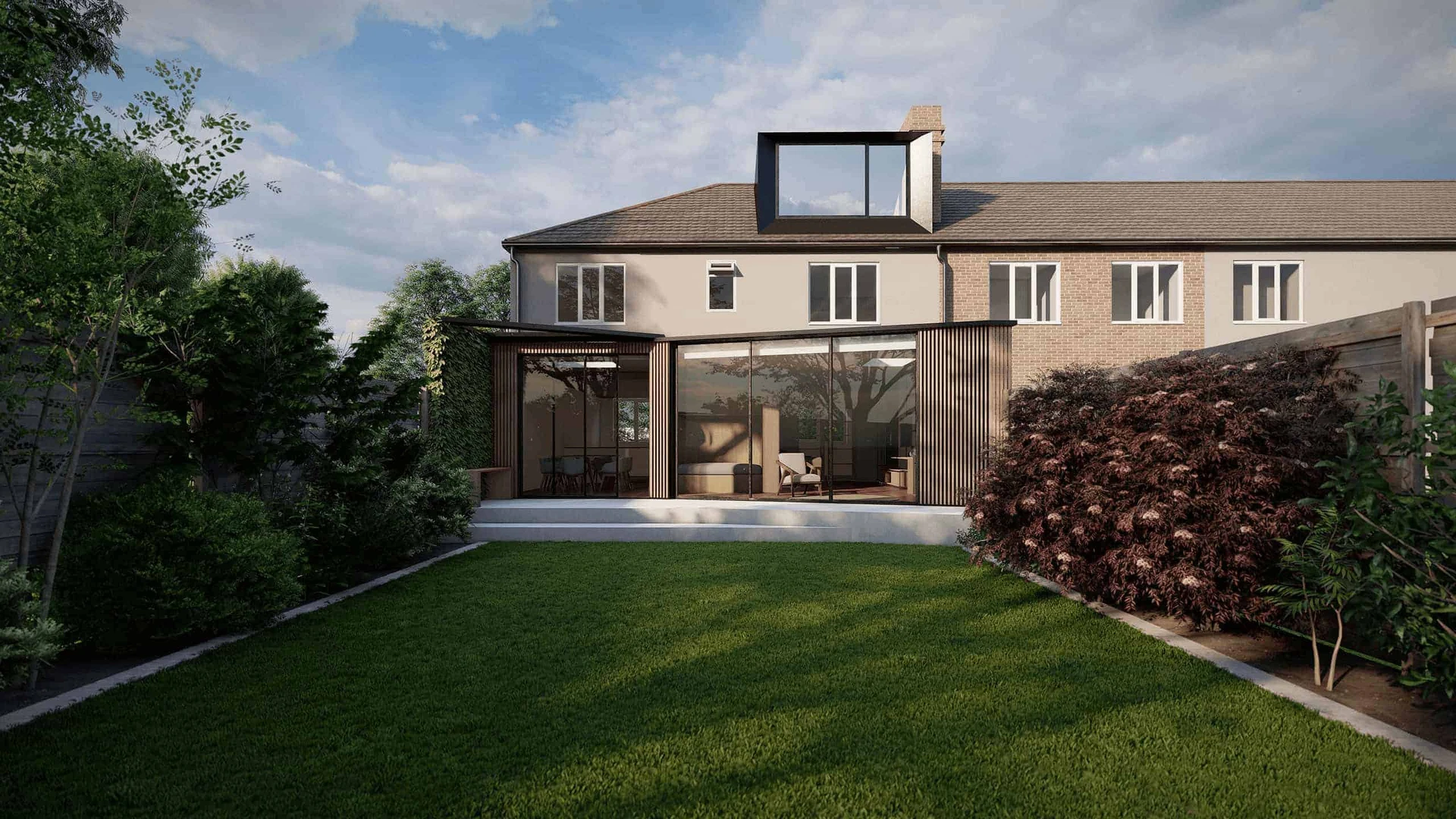House Cost Calculator to Guide: Understanding the True Cost of Your Dream Home
Welcome to our comprehensive guide to understanding the actual cost of an extension calculator for your dream home. Buying a house is one of the most significant investments you’ll ever make, and having a clear picture of all the associated expenses is essential. With our house extension cost calculator, Visit our website to navigate through the labyrinth of costs involved in purchasing a new home.
Numerous factors impact the overall cost of owning a house, from the down payment and mortgage interest rates to closing costs and ongoing maintenance expenses. Our calculator considers all these variables and provides an accurate estimation, ensuring you don’t encounter any surprises.
Whether you are a first-time homebuyer or an experienced real estate investor, this guide will empower you with the knowledge needed to make informed financial decisions and plan for the future. So, let’s dive in and uncover the actual cost of your dream home. Take advantage of our House Cost Calculator today and embark on your homeownership journey with confidence.
How to Use a House Cost Calculator Effectively
A house cost calculator can be invaluable for understanding the actual cost of your dream home. However, using it effectively is critical to getting accurate results. Here are a few tips to help you make the most of your house cost calculator experience.
1. Gather Accurate Information
Gathering all the necessary information is crucial to calculating accurately. Start by collecting details about the property you’re interested in, such as the purchase price, property taxes, and homeowner’s insurance rates. Additionally, clearly understand your financial situation, including your down payment amount, mortgage interest rate, and loan term. The more accurate the information, the more precise your cost estimation will be.
2. Consider All the Factors
A house cost calculator considers various factors that contribute to the overall cost of owning a home. It’s important to consider all these factors to understand the expenses involved comprehensively. Some common factors include property taxes, homeowner’s insurance, mortgage insurance, maintenance costs, utilities, and HOA fees. By considering all these aspects, you’ll have a realistic view of what it truly costs to own your dream home.
3. Assess Your Financial Health
Before using a house cost calculator, assessing your financial health is essential. Take a close look at your income, expenses, and existing debts. Consider your monthly budget and how much you can comfortably afford to spend on housing costs. By understanding your financial situation, you can use the calculator to determine if the desired property aligns with your budget and long-term financial goals.
Using a house cost calculator effectively means having accurate information, considering all the relevant factors, and assessing your financial health. By following these tips, you’ll be well-equipped to make informed decisions and plan for the actual cost of your dream home.
Factors to Consider When Calculating the True Cost of a Home
Calculating the actual cost of a home goes beyond the purchase price. Several factors must be considered to estimate the overall homeownership expenses accurately. By understanding these factors, you can make better financial decisions and plan for the future. Let’s explore some key factors to consider when calculating the actual cost of a home.
1. Down Payment
The down payment is the initial upfront amount you pay to purchase a home. It’s typically a percentage of the total purchase price; the higher the down payment, the lower your mortgage amount. Saving for a substantial down payment is essential to reducing your long-term financial burden and qualifying for better mortgage terms.
2. Mortgage Interest Rate
The mortgage interest rate is the annual percentage the lender charges to borrow money to purchase a home. It directly affects your monthly mortgage payment. A higher interest rate means higher monthly payments and vice versa. It’s crucial to shop around and compare interest rates from different lenders to secure the most favourable terms and save money in the long run.
3. Closing Costs
Closing costs are the fees associated with finalising a real estate transaction. They typically include appraisal fees, title insurance, attorney fees, and loan origination fees. Closing costs can range from 2% to 5% of the home’s purchase price. Budgeting for these costs is essential to avoid any financial surprises at closing.
4. Property Taxes
Property taxes are annual taxes imposed by local governments based on the property’s assessed value. The amount you pay in property taxes can vary depending on the location and value of the home. It’s essential to research the property tax rates in the area you’re considering to understand the ongoing tax obligations.
5. Homeowner’s Insurance
Homeowner’s insurance protects the homeowner from financial loss due to damages caused by covered events such as fire, theft, or natural disasters. The cost of homeowner’s insurance can vary based on factors such as the property’s location, size, and condition. Obtaining quotes from different insurance providers is essential to find the best coverage at competitive rates.
6. Maintenance and Repair Costs
Ongoing maintenance and repair costs are inevitable when owning a home. These expenses can increase, from routine maintenance tasks like landscaping and cleaning to unexpected repairs such as plumbing or electrical issues. Budgeting for these costs and setting aside funds to cover any unforeseen repairs or emergencies is essential.
Considering these factors when calculating the actual cost of a home will give you a more accurate estimation of the expenses involved. By being proactive and planning for these costs, you can avoid financial stress and enjoy your dream home with peace of mind.

Understanding the Different Costs Involved in Buying a House
Buying a house involves several costs beyond the purchase price. Understanding these costs is essential to avoid financial surprises. Let’s explore the costs of buying a home so you can plan accordingly.
1. Down Payment
The down payment is the initial amount you pay to purchase a home. It’s typically a percentage of the total purchase price, ranging from 3% to 20%. The down payment amount depends on various factors, such as the type of mortgage, your credit score, and the lender’s requirements. Saving for a down payment is essential to secure favourable mortgage terms and reduce your long-term financial burden.
2. Mortgage Closing Costs
Mortgage closing costs are the fees associated with finalising a mortgage loan. These costs include appraisal fees, title insurance, attorney fees, loan origination fees, and other administrative expenses. Mortgage closing costs can range from 2% to 5% of the loan amount and are typically paid at the time of closing. It’s essential to budget for these costs to avoid any financial surprises.
3. Moving Expenses
Moving expenses can vary depending on the distance, size of the move, and the services required. Costs may include hiring a moving company, renting a truck, purchasing packing supplies, and temporary storage if needed. Budgeting for these expenses and obtaining quotes from different moving companies is essential to find the best value for your money.
4. Home Inspection and Appraisal Fees
Before purchasing a home, it’s advisable to have a professional inspection and appraisal done. A home inspection assesses the property’s condition and identifies potential issues, while an assessment determines the home’s fair market value. These fees are typically paid out of pocket and can range from a few hundred to a few thousand dollars, depending on the size and complexity of the property.
5. Homeowner’s Association (HOA) Fees
If you’re purchasing a property in a planned community or condominium, there may be homeowner’s association fees to consider. These fees cover the maintenance and management of common areas and amenities. HOA fees can vary significantly depending on the location and amenities offered. Understanding the HOA fees and any restrictions or rules the association imposes before making a purchase decision is essential.
6. Homeowner’s Insurance
Homeowner’s insurance protects the homeowner from financial loss due to damages caused by covered events such as fire, theft, or natural disasters. The cost of homeowner’s insurance can vary based on factors such as the property’s location, size, and condition. Obtaining quotes from different insurance providers is essential to find the best coverage at competitive rates.
7. Property Taxes
Property taxes are annual taxes imposed by local governments based on the property’s assessed value. The amount you pay in property taxes can vary depending on the location and value of the home. It’s essential to research the property tax rates in the area you’re considering to understand the ongoing tax obligations.
8. Ongoing Maintenance and Repair Costs
Owning a home comes with ongoing maintenance and repair costs. These expenses can increase over time, from routine landscaping and cleaning to unexpected repairs such as plumbing or electrical issues. Budgeting for these costs and setting aside funds to cover any unforeseen repairs or emergencies is essential.
Understanding the costs involved in buying a house will help you plan your budget effectively and avoid any financial surprises. Considering these costs upfront allows you to make informed decisions and ensure a smooth homebuying process.
Common Mistakes to Avoid When Calculating House Costs
When calculating house costs, many homebuyers make several common mistakes. These mistakes can lead to inaccurate estimations and financial stress down the line. To ensure a more accurate assessment of the actual cost of your dream home, here are some common mistakes to avoid.
1. Underestimating Closing Costs
Homebuyers often underestimate closing costs. These costs can include appraisal fees, title insurance, attorney fees, loan origination fees, and other administrative expenses. Underestimating closing costs can lead to financial stress at the time of closing. It’s essential to obtain a detailed estimate of closing costs from your lender or real estate agent so you can budget accordingly.
2. Ignoring Ongoing Expenses
Many homebuyers focus solely on the upfront costs of purchasing a home and must consider ongoing expenses. Ongoing expenses include property taxes, homeowner’s insurance, maintenance, utilities, and HOA fees. Ignoring these expenses can result in a significant financial burden and affect your long-term financial goals. It’s crucial to factor in these ongoing expenses when calculating the actual cost of your dream home.
3. Not Accounting for Maintenance and Repairs
Maintenance and repair costs are often overlooked when calculating house costs. Owning a home comes with routine maintenance tasks and the potential for unexpected repairs. Failing to account for these costs can lead to financial stress when the need for repairs arises. Budgeting for ongoing maintenance and repairs is essential to maintain your dream home adequately.
4. Overestimating Home Appreciation
While expecting your home to appreciate over time is natural, overestimating the appreciation rate can lead to unrealistic financial expectations. The local real estate market, economic conditions, and property-specific factors influence home appreciation. It’s important to research historical market trends and consult with real estate professionals to have a more realistic expectation of home appreciation.
5. Neglecting to Shop Around for Mortgage Rates
Mortgage rates can significantly impact the overall cost of homeownership. Neglecting to shop around for mortgage rates can result in higher monthly payments and substantial long-term expenses. It’s crucial to compare rates from different lenders and explore various mortgage options to secure the most favourable terms. Even a slight difference in interest rates can save you thousands of dollars over the life of your mortgage.
By avoiding these common mistakes when calculating house costs, you can ensure a more accurate estimation of the actual cost of your dream home. By being proactive and thorough in your calculations, you’ll be better prepared to make informed financial decisions and confidently enjoy your homeownership journey.
Conclusion and Final Thoughts
Understanding the actual cost of your dream home is crucial for making informed financial decisions and planning for the future. By effectively utilising a house cost calculator and considering all the relevant factors, you can estimate the expenses involved in buying a house more accurately. From the down payment and mortgage interest rates to closing costs and ongoing maintenance expenses, each factor contributes to the overall cost of homeownership.
Remember to gather accurate information, consider all the factors, and assess your financial health when using a house cost calculator. By doing so, you’ll be well-equipped to plan your budget effectively and avoid any financial surprises.
Buying a house is a significant investment, and it’s essential to understand all the costs involved clearly. By avoiding common mistakes and being proactive in your calculations, you can confidently embark on your homeownership journey and enjoy your dream home without financial stress.
Take advantage of our House Cost Calculator today and gain a comprehensive understanding of the actual cost of your dream home. By using this valuable tool and following the guidelines outlined in this guide, you’ll be well-prepared to navigate the complexities of homeownership and make informed financial decisions. Happy house hunting!




